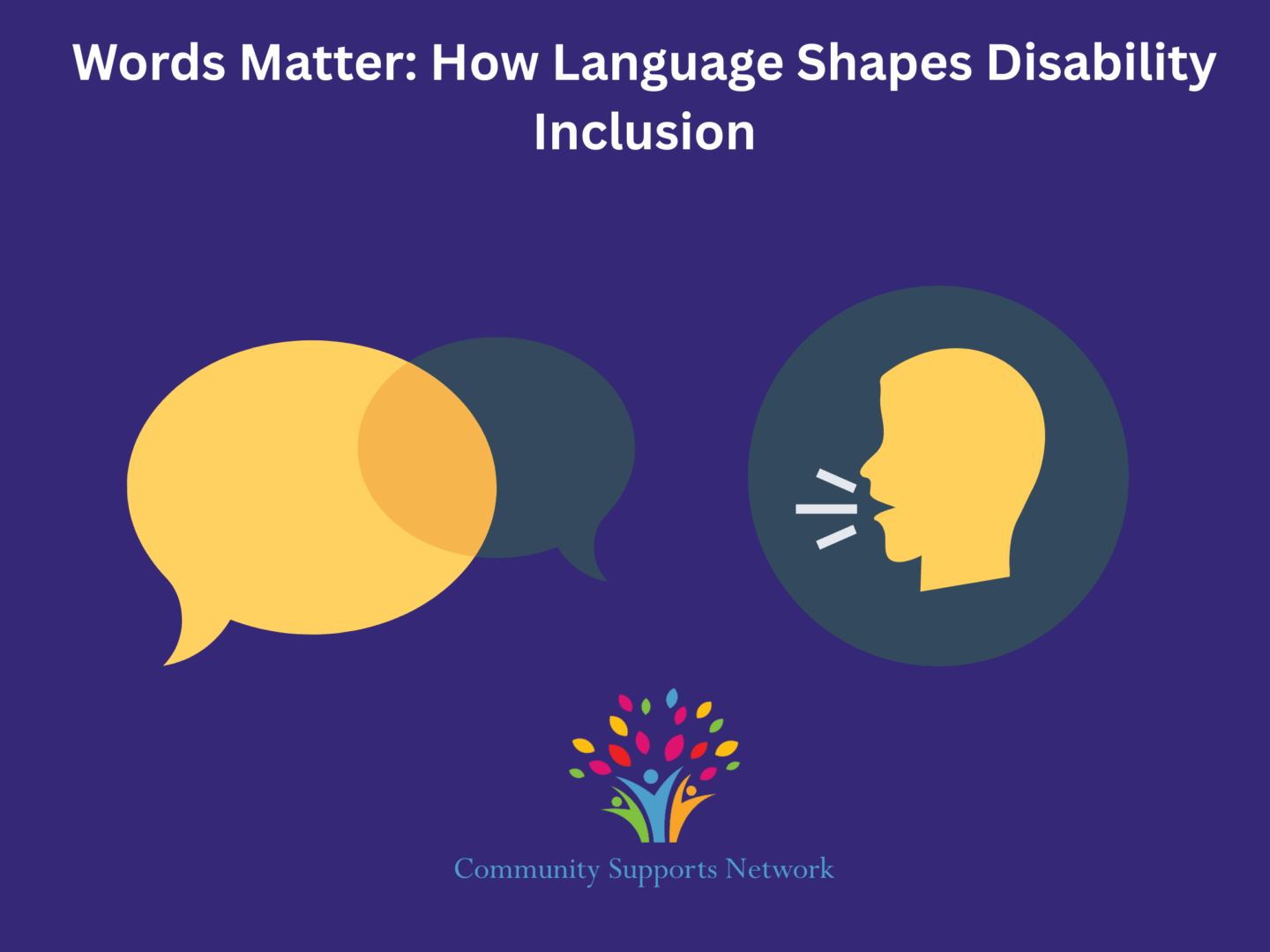
At Community Supports Network (CSN), we believe that inclusion begins with something simple but powerful — our words. The language we use to talk about disability shapes how people are perceived, included, and valued in our communities. When we speak with respect and awareness, we help build a world where everyone belongs.
Why Language Matters
Language does more than describe — it defines how we think. The words we choose can either reinforce stereotypes or create understanding. Over time, society’s approach to disability language has evolved — moving away from labels that isolate toward language that empowers.
For example, phrases like “the disabled” have shifted to “people with disabilities” to emphasize the person, not the condition. This approach, known as person-first language, reflects the idea that disability is one part of who someone is — not their entire identity.
Person-First vs. Identity-First Language
In recent years, there’s been an important and ongoing conversation about how people prefer to be identified.
- Person-first language (like “a person with autism” or “a person who uses a wheelchair”) focuses on individuality before disability.
- Identity-first language (like “an autistic person” or “a Deaf person”) centers pride in disability identity and culture.
Neither is “right” or “wrong” — the most respectful approach is to listen and use the language someone chooses for themselves.
Common Phrases to Rethink
We all use language out of habit, and sometimes without realizing the impact it can have. Here are a few easy shifts to make:
| Instead of… | Try Saying… |
| “Suffers from” or “victim of” | “Lives with” or “has” |
| “Wheelchair-bound” | “Uses a wheelchair” |
| “Normal” or “healthy” | “Non-disabled” |
| “Special needs” | “Support needs” or “disabled” (if preferred) |
Small changes make a big difference. Inclusive language helps everyone feel seen, respected, and part of the conversation.
How We Practice Inclusion at CSN
At CSN, we’re committed to modeling inclusive communication in everything we do — from the way we speak with individuals and families to the language we use in our programs, newsletters, and community outreach. We know that words are one of the first ways people experience our values.
Our mission is not only to provide exceptional support services but also to promote a culture of respect and belonging — across New Jersey and beyond.
The Takeaway
Language evolves, and so should we. By being mindful, open, and willing to learn, we can all help shape a more inclusive world — one word at a time.
Want to learn more about how CSN promotes inclusion and empowerment across New Jersey? Visit our website or follow us on social media for more stories and resources.


